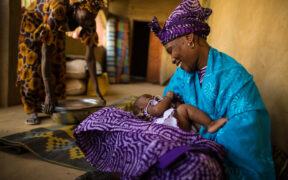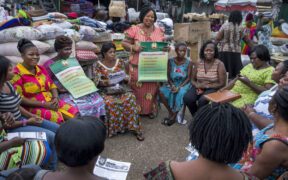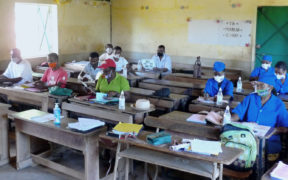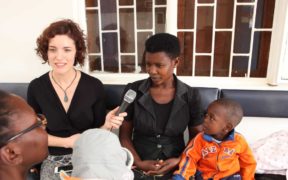Tag:
KM tools and techniques

Gain insights on the vital role of Senegal's self-care guidelines and their impact on reproductive health goals. And, delve into the intersection of knowledge management and self-care guidelines, showcasing the collaborative efforts between Senegal and Knowledge SUCCESS.

Obtenez des perspectives sur le rôle essentiel des directives d'auto-soins du Sénégal et leur impact sur les objectifs de santé reproductive. Plongez également dans l'intersection entre la gestion des connaissances et les directives d'auto-soins, mettant en lumière les efforts collaboratifs entre le Sénégal et Knowledge SUCCESS.

At Knowledge SUCCESS, we work closely with family planning and reproductive health (FP/RH) projects around the world to support their knowledge management (KM) efforts—that is, to share what works and what doesn’t work in programs, so we can learn from each other, adapt and scale up best practices, and avoid repeating past mistakes.

Madagascar has remarkable biodiversity with 80% of its flora and fauna found nowhere else in the world. While its economy is highly reliant on natural resources, significant unmet health and economic needs drive unsustainable practices. In the face of growing uncertainty—Madagascar is extremely susceptible to climate change—we spoke to Madagascar PHE Network Coordinator Nantenaina Tahiry Andriamalala about how early population, health, and environment (PHE) successes have led to a rich network of organizations working to address health and conservation needs in tandem.

The EAST framework, developed by the Behavioural Insights Team (BIT), is a notable and well-used behavioral science framework that FP/RH programs can use to overcome common biases in knowledge management for FP/RH professionals. EAST stands for “easy, attractive, social, and timely”—four principles that Knowledge SUCCESS as it designs and implements knowledge management activities to get the latest evidence and best practices into FP/RH programs around the world.

FP/RH community members can’t always attend the many interesting webinars offered every week or watch a full recording afterward. With many people preferring to consume information in a written format over watching a recording, webinar recaps are a quick knowledge management solution to address this challenge.

WHO/IBP Network and Knowledge SUCCESS recently published a series of 15 stories about organizations implementing High Impact Practices (HIPs) and WHO Guidelines and Tools in family planning and reproductive health (FP/RH) programming. This quick read shares considerations, tips, and tools that we learned while creating the series. Documenting implementation stories—to share country experiences, lessons learned, and recommendations—strengthens our collective knowledge about implementing evidence-based interventions.

Family Planning Voices became a global storytelling movement within the family planning community when it launched in 2015. One of its founding team members reflects on the initiative's impact and shares tips for those interested in starting a similar project.

On September 9, Knowledge SUCCESS & FP2020 hosted the fifth and final session in the first module of the Connecting Conversations series. Missed this session? The presentation slides are available to download at the end of this recap. Due to a computer error, only the French recording is available. Registration is now open for the second module, which focuses on critical and influential messenger’s in young people’s lives.













